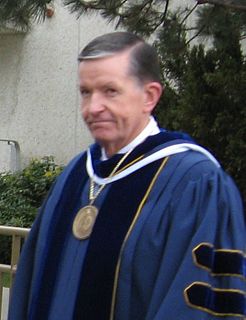A Quote by Martin Luther
There can be no be no better instruction... than that every man who is to deal with his neighbor to follow these commandments. 'Whatsoever ye would that others should do unto you, do ye also unto them,' and 'Love thy neighbor as thyself.' If these were always followed, then everything would instruct and arrange itself; then no law books nor courts nor judicial actions would be required. All things would quietly and simply be set to rights, for everyone's heart and conscience would guide them.
Quote Topics
Actions
All Things
Also
Always
Arrange
Better
Books
Commandments
Conscience
Courts
Deal
Every
Every Man
Everyone
Everything
Follow
Followed
Guide
Heart
His
Instruction
Itself
Judicial
Law
Law Books
Love
Love Thy Neighbor
Man
Neighbor
No Law
Nor
Others
Quietly
Required
Rights
Set
Should
Simply
Than
Them
Then
Things
Thy
Thyself
Unto
Were
Whatsoever
Would
Would Be
Related Quotes
As we strive to better understand how Jesus sees us and contemplate our own attempts to live as the Redeemer would have us live, let us remember his instructing observations and their universal applications in literally all that we do: "If ye love me, keep my commandments." (John 14:15) and "Inasmuch as ye have done it unto one of the least of these my brethren, ye have done it unto me."
Satanism advocates practicing a modified form of the Golden Rule. Our interpretation of this rule is: "Do unto others as they do unto you"; because if you "Do unto others as you would have them do unto you," and they, in turn, treat you badly, it goes against human nature to continue to treat them with consideration. You should do unto others as you would have them do unto you, but if your courtesy is not returned, they should be treated with the wrath they deserve.
I would that ye should come unto Christ, who is the Holy One of Israel, and partake of his salvation, and the power of his redemption. Yea, come unto him, and offer your whole souls as an offering unto him, and continue in fasting and praying, and endure to the end; and as the Lord liveth ye will be saved.
Verily, I say unto you, that the wisdom of man, in his fallen state, knoweth not the purposes and the privileges of my hold priesthood, but ye shall know when ye receive a fullness by reason of the anointing: For it is my will, that in time, ye should take unto you wives of the Lamanites and Nephites, that their posterity may become white, delightsome and just, for even now their females are more virtuous then the gentiles.
Christ said "Thou shalt love thy neighbor as thyself" and when asked "who is thy neighbour? went on to the parable of the Good Samaritan. If you wish to understand this parable as it was understood by his hearers, you should substitute "Germans and Japanese" for Samaritan. I fear my modern day Christians would resent such a substitution, because it would compel them to realize how far they have departed from the teachings of the founder of their religion.
The Sermon on the Mount does not provide humanity with a complete guide to personal, social and economic problems. It sets forth spiritual attitudes, moral principles of universal validity, such as " Love your enemies," "Whatsoever ye would that men should do to you, do ye even so to them," and it leaves to Christians the task-the admittedly difficult task-of applying them in any given situation.
Had I no eyes but ears, my ears would love. That inward beauty and invisible; Or were I deaf, thy outward parts would move each part in me that were but sensible: Though neither eyes nor ears, to hear nor see, yet should I be in love by touching thee. 'Say, that the sense of feeling were bereft me, and that I could not see, nor hear, nor touch, and nothing but the very smell were left me, yet would my love to thee be still as much; for from the stillitory of thy face excelling comes breath perfum'd that breedeth love by smelling.
Does it follow from: 'turn ye' that therefore you can turn? Does it follow from "'Love the Lord thy God with all thy heart' (Deut 6.5) that therefore you can love with all your heart? What do arguments of this kind prove, but the 'free-will' does not need the grace of God, but can do all things by its own power....But it does not follow from this that man is converted by his own power, nor do the words say so; they simply say: "if thou wilt turn,telling man what he should do. When he knows it, and sees that he cannot do it, he will ask whence he may find ability to do it..." 164







































